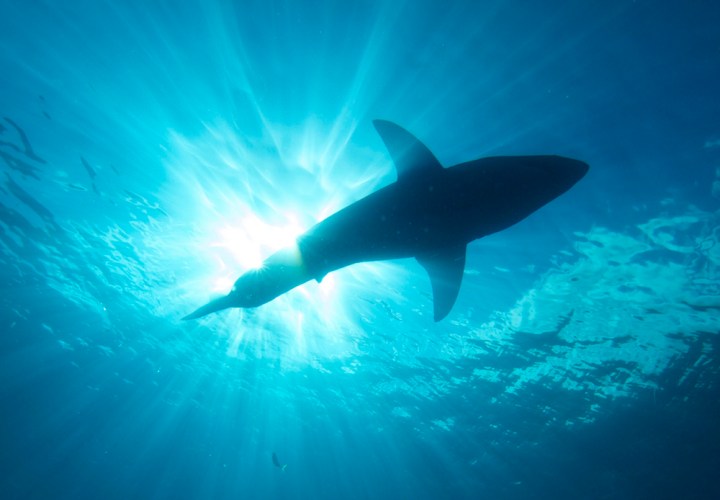
It happened while she was kitesurfing in the beautiful Fitzgerald River National Park about 250 miles (400 km) south-east of Perth. The French traveler spotted what she described as a “big black shadow” on the water, but wrongly assuming it to be her kite, she carried on surfing without a care in the world.
However, after a short while, she clocked that the movement of the kite and the “shadow” didn’t quite match up. Indeed, her concerns grew when she noticed it “circling around me.”
In a drone video posted to Facebook showing the incident from up high, Fabre said that when the dark object passed directly beneath her board, she immediately realized that it was “a huge great white shark.” As anyone would do in such unnerving circumstances, she tried to get herself back to shore as fast as possible, but with the winds frustratingly light, the going was slow.
As she neared the beach, Fabre heard her buddy, who’d also spotted the shark on his drone camera display, shouting at her to get away. But by that time she didn’t need telling.
“I was struggling to get my ass out of the water, and I thought, ‘I’m done,'” she says in the video, embedded below.
Luckily for Fabre, she reached dry land with all her body parts intact, though she admitted she was pretty shaken up by the incident.
There were 26 reported shark attacks in Australia last year, with two fatalities among them. Always on the lookout for new ways to keep swimmers and other sea users safe, the authorities are taking an increasing interest in drone technology as a way to monitor waters.
For example, in 2015 New South Wales, whose coast covers nearly 700 miles and includes the city of Sydney, spent $16 million on tech-based solutions that included not only shark-detecting drones, but also “Clever Buoy” sonar gear, shark “listening stations” for real-time tracking, and a mobile app that alerts smartphone-owning beach-goers when a shark is in nearby waters.

